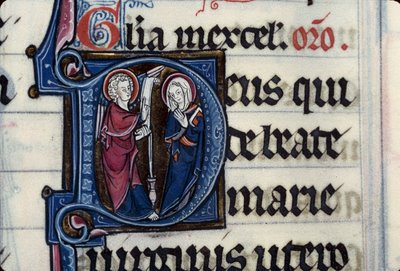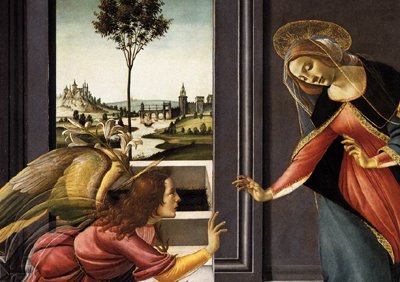DECLARATION
Regarding the article entitled "Dalla parte della bambina brasiliana” [by Archbishop "Rino" Fisichella] and published in L'OSSERVATORE ROMANO on March 15, we the undersigned declare:
1. The fact [the rape of the little girl] did not happen in Recife, as the article states, but in the city of Alagoinha (Diocese of Pesqueira).
2. All of us - beginning with the parish priest of Alagoinha (undersigned) - treated the pregnant girl and her family with all charity and tenderness. The Parish priest, making use of his pastoral solicitude, when aware of the news in his residence, immediately went to the house of the family, in which he met the girl and lent her his support and presence, before the grave and difficult situation in which the girl found herself. And this attitude continued every day, from Alagoinha to Recife, where the sad event of the abortion of the two innocent [babies] took place. Therefore, it is quite evident and unequivocal that nobody thought in "excommunication" in the first place. We used all means at our disposal to avoid the abortion and thus save all THREE lives. The Parish priest personally joined the local Children's Council in all efforts which sought the welfare of the child and of her two children. In the hospital, in daily visits, he displayed attitudes of care and attention which made clear both to the child and to her mother that they were not alone, but that the Church, represented by the local Parish priest, assured them of the necessary assistance and of the certainty that all would be done for the welfare of the girl and to save her two children.
3. After the girl was transferred to a hospital of the city of Recife, we tried to use all legal means to avoid the abortion. The Church never displayed any omission in the hospital. The girl's parish priest made daily visits to the hospital, traveling from the city which is 230 km [140 mi] away from Recife, making every effort so that both the child and the mother felt the presence of Jesus the Good Shepherd, who seeks the sheep who need most attention. Therefore, the case was treated with all due care by the Church, and not 'sbrigativamente' [summarily], as the article says.
4. We do not agree [with Archbishop Fisichella] that the "decision is hard... for the moral law itself". Our Holy Church continues to proclaim that the moral law is exceedingly clear: it is never licit to eliminate the life of an innocent person to save another life. The objective facts are these: there are doctors who explicitly declare that they perform and will continue to perform abortions, while others declare with the same firmness that they will never perform abortions. Here is the declaration written and signed by a Brazilian Catholic physician: "...As an obstetrician for 50 years, graduated in the National Medical School of the University of Brazil, and former chief of Obstetrics in the Hospital of Andarai [Rio de Janeiro], in which I served for 35 years until I retired in order to dedicate myself to the Diaconate, and having delivered 4,524 babies, many from juvenile [mothers], I never had to resort to an abortion to 'save lives', as well as all my colleagues, sincere and honest in their profession and faithful to their Hippocratic oath. ..."
5. The affirmation [in the article] that the fact was made public in the newspapers only because the Archbishop of Olinda and Recife rushed to declare the excommunication is false. It suffices to notice that the case was made public in Alagoinha on Wednesday, February 25; the Archbishop made his pronouncement to the press on March 3; and the abortion was performed on March 4. It would be too much to imagine that the Brazilian press, before a fact of such gravity, would have silenced during the period of six days. Therefore, the news of the pregnant girl ("Carmen") was made public in the newspapers before the consummation of the abortion. Only after that, when asked by journalists, on March 3 (Tuesday), the Archbishop mentioned canon 1398. We are convinced that the disclosure of this therapeutic penalty (the excommunication) will do much good to many Catholics, making them avoid this grievous sin. The silence of the Church would be very prejudicial, especially considering that fifty million abortions are being performed every year around the world, and in Brazil alone one million innocent lives are ended. The silence may be interpreted as collusion or complicity. If any doctor has a "perplexed conscience" [as the article says] before performing an abortion (which seems extremely improbable to us), he should - if he is a Catholic and wishes to follow the law of God - seek a spiritual director.
6. The article is, in other words, a direct attack of the defense of the lives of the three children vehemently made by Archbishop José Cardoso Sobrinho and leaves evident how much the author does not have the necessary data or information to speak on the matter, due to his utter ignorance of the facts. The text may be interpreted as an apologia of abortion, violating the Magisterium of the Church. The abortionist doctors were not in the moral crossroads mentioned by the text; on the contrary, they performed the abortion with full knowledge and coherence with what they believe and teach. The hospital in which the abortion on the little girl was performed is one of those in which this procedure is always performed in our state, under the cover of "legality". The doctors who acted as executioners of the twins declared, and still declare in the national media, that they did what they are used to doing "with great pride". One of them declared even that: "Then, I have been excommunicated many times".
7. The author believed he could speak about [a situation] he did not know, and, what is worse, he did not even have the trouble of first speaking to his brother in the episcopate, and, for his imprudent attitude, he is causing great scandal among the Catholic faithful in Brazil who are believing that Archbishop José Cardoso Sobrinho was rash in his pronouncements. Instead of seeking his brother in the episcopate, he chose to believe in our openly Anti-clerical press.
Recife-PE, March 16, 2009
Fr. Cícero Ferreira de Paula
Chancellor - Archdiocese of Olinda and Recife
Mons. Edvaldo Bezerra da Silva
Vicar General - Archdiocese of Olinda and Recife
Fr Moisés Ferreira de Lima
Rector of the Archdiocesan Seminary
Dr. Márcio Miranda
Attorney for the Archdiocese of Olinda and Recife
Fr. Edson Rodrigues
Parish priest of Alagoinha-PE - Diocese of Pesqueira



















